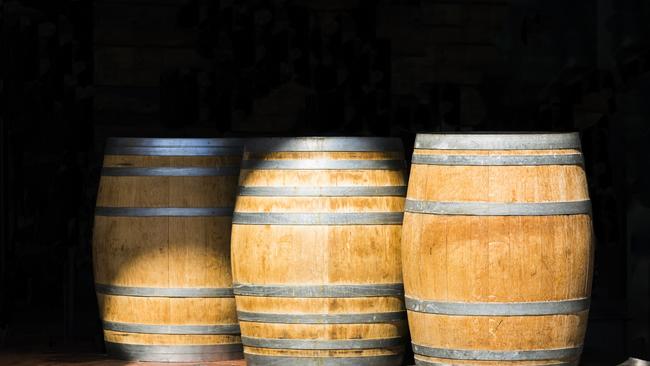Wine sales to China dwindle to virtually zero as tariffs bite
China bought just 1 per cent of Australian red wine exports in January, down from a 50 per cent share before our largest economic partner implemented punishing import tariffs in late November.

China bought just 1 per cent of Australian red wine exports in January, down from a 50 per cent share before our largest economic partner implemented punishing import tariffs in late November.
The latest, preliminary merchandise trade figures from the Australian Bureau of Statistics revealed the devastating impact on winemakers from China’s trade aggression.
With a major market ripped away, international sales of red wine dropped by $81m, or 53 per cent, between December and January to around $70m.
The dramatic impact on winemakers is in sharp contrast to coal miners, who have managed to diversify their markets away from China after the country banned Australian thermal coal imports.
The Chinese Ministry of Commerce imposed temporary tariffs from 28 November 2020 of between 107.1 per cent and 212.1 per cent on Australian wine ahead of finalising an anti-dumping investigation it began in August – an investigation widely believed to be politically motivated.
Replacing the Chinese market is a major challenge for local winemakers.
The ASX-listed Treasury Wine Estates in its half-year profit update last week said it was continuing a drive to diversify its export markets away from China – a process it expected to complete by the middle of this year – after its interim profits slumped 42 per cent.
Despite a sharp decline in the sale of certain goods subjected to Chinese trade aggression in recent months, China’s share of total merchandise exports was steady against a year earlier at just under 40 per cent.
Exports to China were around $500m higher than January 2020, thanks in large part to a surge in iron ore and coking coal exports as our miners have shipped more commodities at higher prices through the pandemic.
Total Australian merchandise exports declined by $3bn, or 9 per cent, to $32.1bn in the month.
Total imports fell $2.6bn, or 10 per cent, after COVID disruptions contributed to a decline of $845 million (-23 per cent) in car imports.
“A drop in global car manufacturing is leading to supply shortages, with the imports of road vehicles from Japan and Thailand, Australia’s two largest road vehicle source countries, driving the decline in January imports,” the ABS said.
Australia’s trade surplus – including services – reached a record $73bn in 2020, propelled by surging iron ore sales and a slump in demand for imported goods through the COVID-19 crisis.



